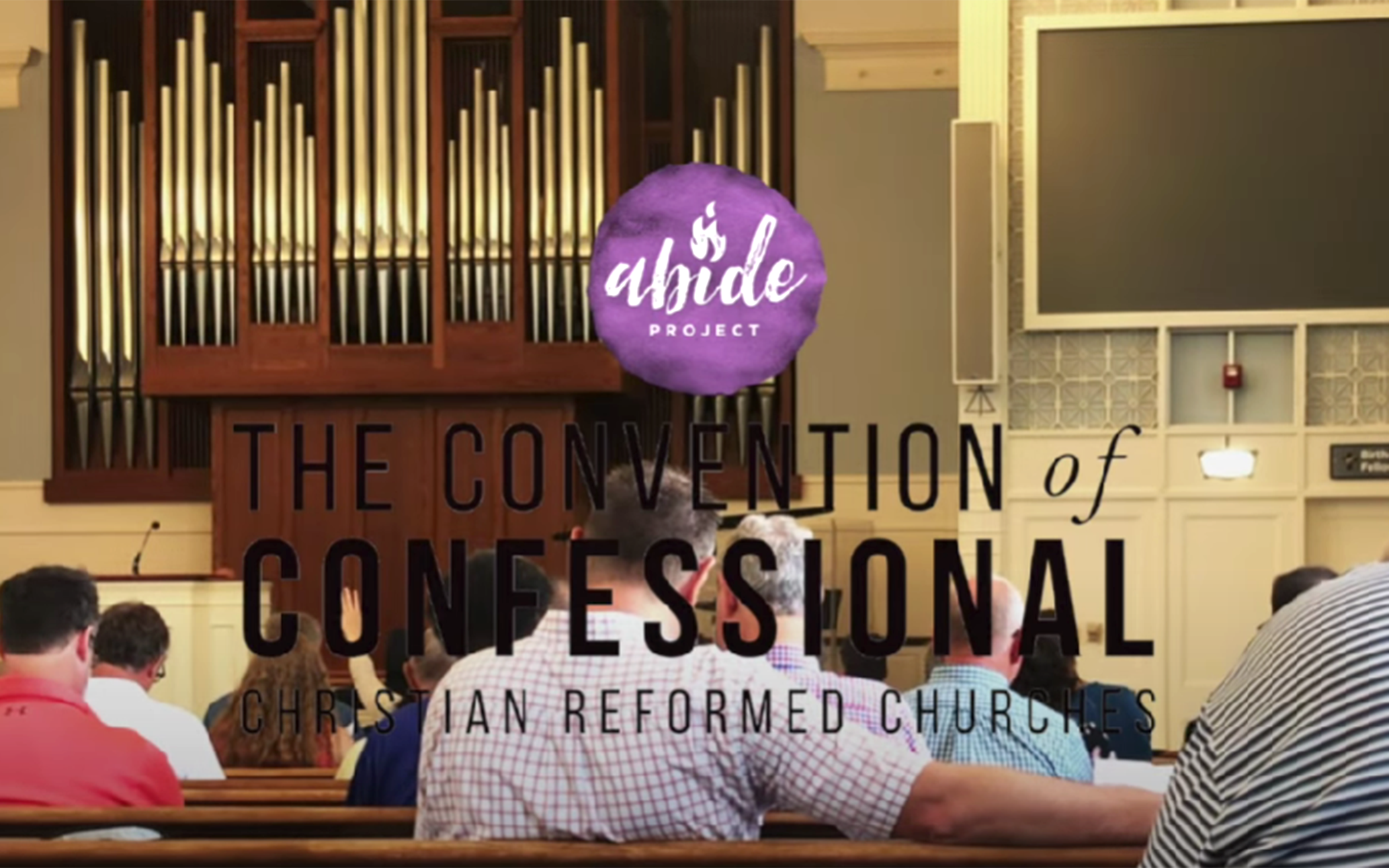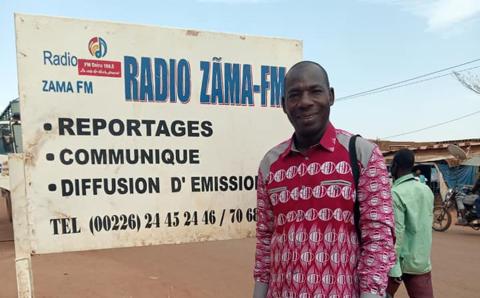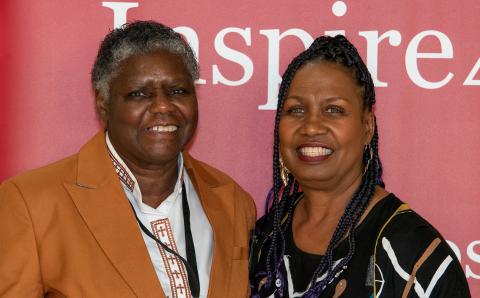About 120 people from 22 different classes (regional groups of Christian Reformed churches) met Aug. 2 to 3 for the Convention of Confessional Christian Reformed Churches in Oak Lawn, Ill. Those gathered heard speakers, nominated a new steering committee, and discussed what might be next for the group that was formed by CRC members who supported the denomination’s 2020 human sexuality report. Registration was limited to those who expressed agreement with the mission of the convention’s organizer, the Abide Project—“For the sake of the true Gospel, the faithfulness of Christ's Church, the glory of God, and the good of His people, we strive for the Christian Reformed Church to uphold the historic, beautiful, Biblical understanding of human sexuality in doctrine, discipleship, and discipline.”
Chad Steenwyk, pastor of Central Avenue Church in Holland, Mich., and steering committee chair, said the restriction was to foster fruitful conversation. “We were saying ‘if you’re in agreement with the mission, this is a conversation we want to have together’,” Steenwyk said in an Aug. 18 interview. “We were supporting each other in how to live into ministry in a confessional way.
“This was less like a back war-room meeting and more like a convention, where people who had been meeting over Zoom came and experienced God together,” Steenwyk said.
Abide formed in 2021 out of a group that had initially come together for Zoom conversations to discuss the CRC’s human sexuality report, commissioned by Synod 2016 and recommended to the churches as a useful biblical summary by Synod 2022. The report calls Christians to live chastely in their sexual lives and encourages pastoral care of all members. It maintains the distinction expressed in the CRC’s 1973 Report from the Committe to Study Homosexuality “that there is no sin in being attracted to the same sex. We only sin if we act on our sexual attractions” (Agenda for Synod 2022, p. 405) and it concludes, from an examination of biblical texts, “that homosexual acts of any kind are sinful and not in agreement with God’s will for his covenant people” (Agenda for Synod 2022, p. 424).
What’s Next
In a video recapping day one of the convention, Lloyd Hemstreet, pastor of Coopersville (Mich.) CRC and who is a volunteer treasurer for the Abide Project, sets up the next day’s discussions with, “The Abide project was formed to see the HSR (human sexuality report) pass. We praise God that’s exactly what happened. The question is, now what? What do we do next?”
That’s not public yet. Steenwyk said the convention heard a presentation of a core principles document, which participants provided feedback on, and is still being hashed out.
Steenwyk said it may be shared as a resource, at some point, on the Abide project website, but it’s “not something that will be complete in a month or two.” Steenwyk said the document is something “to keep the project in the right frame of reference,” recognizing that participants are concerned about more than differences in the denomination about human sexuality “but also the nature of the gospel; foundational aspects of what it means to be the church of Jesus Christ; of what it means to follow Jesus faithfully.”
Shouldn’t articulations of what it means to follow Jesus faithfully take place with the whole church? “We’re not the first group to focus in on one aspect of what that means,” Steenwyk said. “There are ethnic minority groups, like Consejo Latino; Black and Reformed; there’s All One Body, they’ve been around longer than us, focusing in on how to make changes to live into what they see; there are groups looking at ‘what does ministry in the inner city mean?’ All of these groups have seen a gap or a dearth within the denomination on providing specifics to one aspect. We were not hearing a lot that is supporting or promoting the historic, biblical understanding of human sexuality. We formed to do that.”
Of the convention’s name, Steenwyk said “confessional” was included to indicate a seriousness that Abide participants hold for the confessions of the church—“that we are ‘confessional’ regarding our doctrine, discipleship, and discipline.” But Abide is not really an organization, he said: “There is no membership; it has no ecclesiastical standing, no place in the CRC structure except that it is made up of CRC members and was started by CRC members. It’s a ‘project.’ I realize that’s not a clear definition, but the truth is it was started by a grassroots group of pastors who don’t really care much for bureaucracy, so we don’t have a lot of bureaucracy.
“We see a need, and we’re going to dive into that. It’s just some pastors and officebearers living into their ministry and helping each other to do that in a biblical way,” Steenwyk said.
Asked specifically, “Does this group seek to revisit the CRC’s 1995 Synod decision to recognize two biblically defensible positions on women called to serve in offices of the church?” Steenwyk said, “That’s not in our mission. Different conversations have come up, side conversations. We have had some women pastors involved in the project. When you have a loose group, there are different things that people might want to address, but I’ve said let’s focus in—we’re not talking about everything.” One woman pastor, Lora Copley, who has written for the project, was selected for the new steering committee, announced in an Abide email update Aug. 25.
Not Settled?
While the Abide Project expresses praise for the passing of the human sexuality report, others in the CRC, including in The Banner and the Reformed Journal, have expressed laments and stewings over decisions made at Synod 2022, including the decision to enact discipline toward Neland Avenue CRC, a congregation in Grand Rapids, Mich., that in 2020 ordained as deacon a woman in a same-sex marriage.
“Most feel that this isn’t settled yet,” Steenwyk said. “Communications from our institutions and the denomination indicate that we still have to figure out the implications of synod’s decisions. We still have a vision that needs to be spoken into.
“Now we take information from the convention, what we talked about at round table discussions, and answer what is the role for Abide now, if there is one.”
The convention’s themes, described in the online video recaps by Hemstreet and Tyler Wagenmaker, pastor of Beaverdam (Mich.) CRC, included what it means to “abide” in Christ (John 15:1-17) and the three marks of the church described in the Belgic Confession: preaching of the Word, worship and administration of the sacraments, and discipline.
Discipline and Pastoral Care
Shaun Furniss, a pastor of Trinity CRC in Sparta, Mich., took part in an interview discussion on discipleship, discipline, and pastoral care at the convention. Speaking to The Banner on Aug. 22, he said, “What we tried to discuss is that in holding a (traditional) biblical view of human sexuality as was articulated in the human sexuality report, but more importantly as articulated in the Scriptures, our call is to show compassion, tact, kindness, love to those of the LGBTQ+ community without withholding the truth of Scripture and to apply that within the unique circumstances of that person.”
He said, “The overall climate of the Q-and-A time was very inquisitive, desiring to know how to care for people from a biblical perspective, and there was great desire for there to be compassion and kindness without forgoing biblical truth.” And he doesn’t see room for a different understanding than what synod has defined as confessional.
“The reality is our denomination cannot function by holding two views on human sexuality that they say are equally acceptable and yet completely opposite,” Furniss said. “You can’t have two opposing definitions of human sexuality under the same umbrella of a denomination and then say, ‘OK, now all of you, from completely different definitions of truth, now apply pastoral care equally.’ Why? Because you’re coming from different definitions of truth, so the way you apply that pastorally is going to be radically different. So we have to start with truth, we have to start with an authority, and unless we are unified on that, then we will not be unified in pastoral care, because we’re not going to apply what we believe is true in the same way.”
That view, that the two sides can’t remain together in one denomination has been expressed frequently and it contrasts what delegate Larry Louters (Classis Grand Rapids East) said at Synod 2022, just after the body ruled to instruct Neland to rescind its deacon. “We need you, but you also need us,” he told synod, saying the congregation of Neland didn’t intend to leave. An in loco committee of synod has been assigned to meet with Neland Avenue CRC to oversee its compliance to synod’s rulings and to report to Synod 2023. In statements, Neland has said it welcomes the work of the committee but also that it intends to appeal synod’s decision. The in loco committee, which met for the first time Aug. 15, is expected to meet with Neland Avenue CRC and Classis Grand Rapids East in September. Its work, according to an Aug. 19 CRC Communications report, is confidential.
Moving Forward
The Abide Project’s new steering committee wasn’t yet listed on its website at the time of publication. Steenwyk remains as chair and there is one pastor serving a Canadian church on the 10-person committee.
Hemstreet said in an email that the convention’s registration fee of $75 was to cover expenses—facility, food, printing the program, and paying three support staff. It came out just about even, he said, with a few hundred dollars earned. “We could have charged everyone $4 less a person to truly break even.” Hemstreet said the four primary speakers received no honorarium. “We believe that all CRC pastors are in this project together, so in our lecture series we only gave honorariums/speaking fees to those outside the denomination that shared with us. Everything else is all volunteer to this point.” Aside from the convention registrations the project’s funds have come from “a little over a dozen churches” contributing directly to the project.
*The Banner requested but was not welcome to send a reporter to the Convention of Confessional Christian Reformed Churches, having been told by email, “Since this is going to be more of a discussion time—much of it informal, we aren't opening it up to the media. Certainly, you can reach out afterward and we can talk about how it goes.”
About the Author
Alissa Vernon is the news editor for The Banner.








